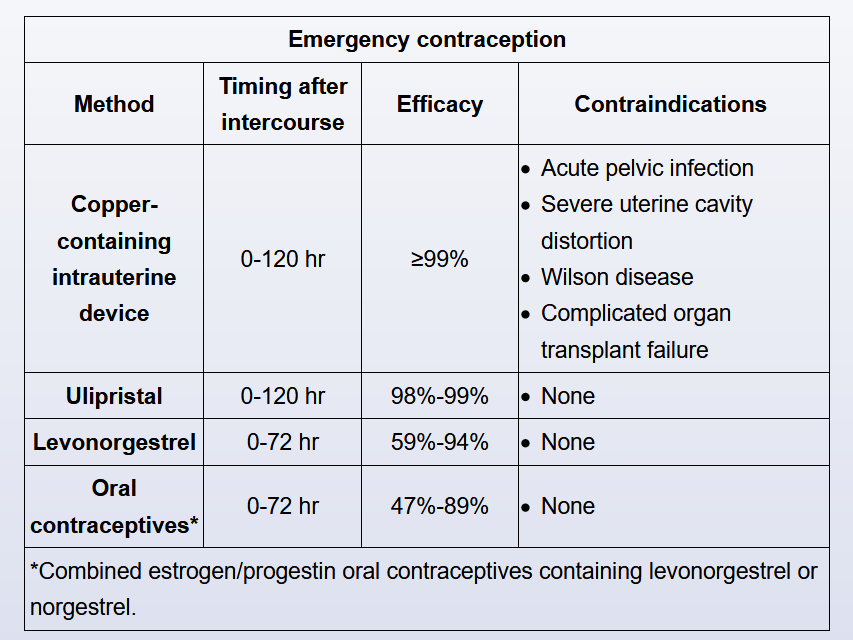Emergency contraception
- related: OBGYN
- tags: #obgyn

Victims of sexual assault should be offered information about emergency contraception to prevent pregnancy. In women with regular ovulatory cycles, the probability of pregnancy is as high as 30% prior to ovulation (eg, 2 weeks after the last menstrual period). A negative pregnancy test in this setting does not exclude the possibility of pregnancy as testing is positive only after implantation (eg, 4 weeks after last menstrual period).
Oral emergency contraceptives prevent pregnancy by delaying ovulation. Ulipristal, an antiprogestin, is the most effective oral emergency contraceptive and may be taken up to 5 days after unprotected intercourse. Its efficacy does not decrease with time, as occurs with levonorgestrel (Plan B) and combined hormonal contraceptives.
The copper intrauterine device (IUD) prevents fertilization by interfering with sperm function and can be placed within 5 days of unprotected intercourse for emergency contraception. The copper IUD is the most efficacious form of emergency contraception at 99% pregnancy prevention, but it is contraindicated in the setting of acute cervicitis (eg, friable cervix, multiple polymorphonuclear leukocytes on microscopy).
The etonogestrel subcutaneous implant is a long-acting, reversible contraceptive; it is not a form of emergency contraception.